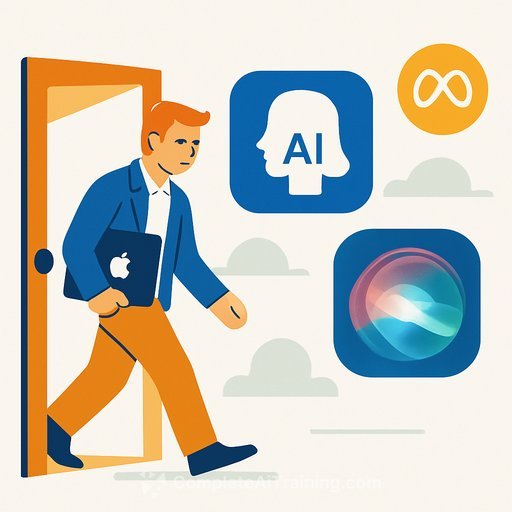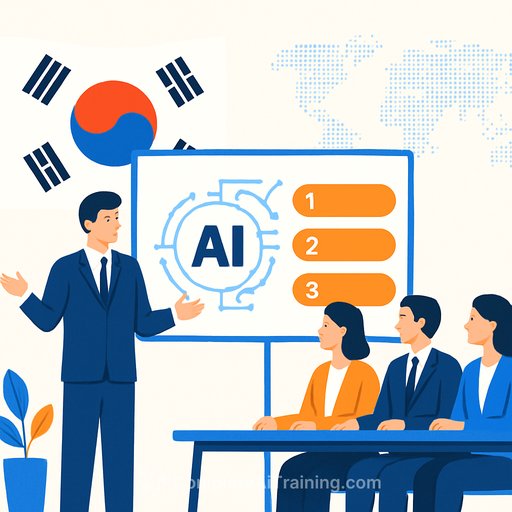Apple's AI bench thins as Robby Walker reportedly exits
Apple is set to lose a key AI leader. Robby Walker, a senior executive who reported to John Giannandrea, is reportedly leaving after overseeing Siri and a new AI-powered web search system scheduled for next year.
Walker led Apple's Answers, Information and Knowledge team. His exit follows a series of departures that raise hard questions about Apple's AI roadmap, talent retention, and pace against rivals.
Why this matters for executives
- Product risk: Leadership turnover near a major launch (AI search) increases execution risk and delays.
- Talent signal: Senior exits often trigger second-order attrition across teams and vendors.
- Market pressure: Competitors like Perplexity and ChatGPT are compressing timelines and user expectations.
- Investor perception: AI delivery setbacks are already reflected in market sentiment this year.
Recent departures compound the issue
Ruoming Pang, who led Apple's AI models group, moved to Meta and reportedly took several engineers and researchers. Frank Chu, a senior figure in Apple's search services, also joined Meta last month.
Even with Walker's team scaled back in recent months, he remained influential internally. The cumulative effect is a thinner leadership layer at a critical moment for Siri and AI search.
Signals to watch next
- Successor clarity: Named leader for Siri and the AI search effort within 30 days.
- Roadmap evidence: Demos, previews, or developer hooks for the search system before year-end.
- Hiring velocity: Senior AI and search roles opened and closed, plus compensation trends.
- Partnership moves: Model licensing or distribution agreements that offset internal bandwidth gaps.
- Attrition rate: Notable staff departures from Siri, search, and core AI model teams.
Strategy implications for AI leaders
- Reduce key-person risk: Establish clear deputies, decision logs, and shared ownership for core systems.
- Protect continuity: Mandate architecture docs, runbooks, and model lineage records across teams.
- Balance build vs. partner: Use external model providers to de-risk timelines; reserve in-house focus for clear differentiators.
- Strengthen talent moat: Offer mission clarity, technical autonomy, and measurable impact over perks.
- Stage-gate capital: Tie AI funding tranches to user adoption and latency/quality thresholds, not only milestones.
- Align comms: Set public expectations on what ships, when, and how it will be measured.
Internal sentiment, in Walker's words
In a March internal meeting, Walker defended Siri's progress while acknowledging delays: "We swam hundreds of miles - we set a Guinness Book for World Records for swimming distance - but we still didn't swim to Hawaii. And we were being jumped on, not for the amazing swimming that we did, but the fact that we didn't get to the destination."
Competitive pressure is real
Answer engines and chat interfaces are setting the bar for speed, accuracy, and integrated actions. Apple's planned AI search will be judged against products already in daily use. That puts weight on leadership stability, data advantage, and integration with iOS and services.
Action checklist (30/60/90 days)
- Next 30 days: Audit single-threaded leaders across AI programs; assign deputies; require architecture and decision docs.
- Next 60 days: Open senior requisitions, activate referral loops, and pre-negotiate partner capacity as a hedge.
- Next 90 days: Run build/partner scenarios for search, assistants, and on-device models; stage-gate launches by user value, not feature count.
Upskilling your leadership bench
If you're building or restructuring AI teams, ensure leaders and PMs share a common operating model for models, data, and deployment. Curated programs can speed this. Explore role-based programs here: AI courses by job.
Your membership also unlocks:






